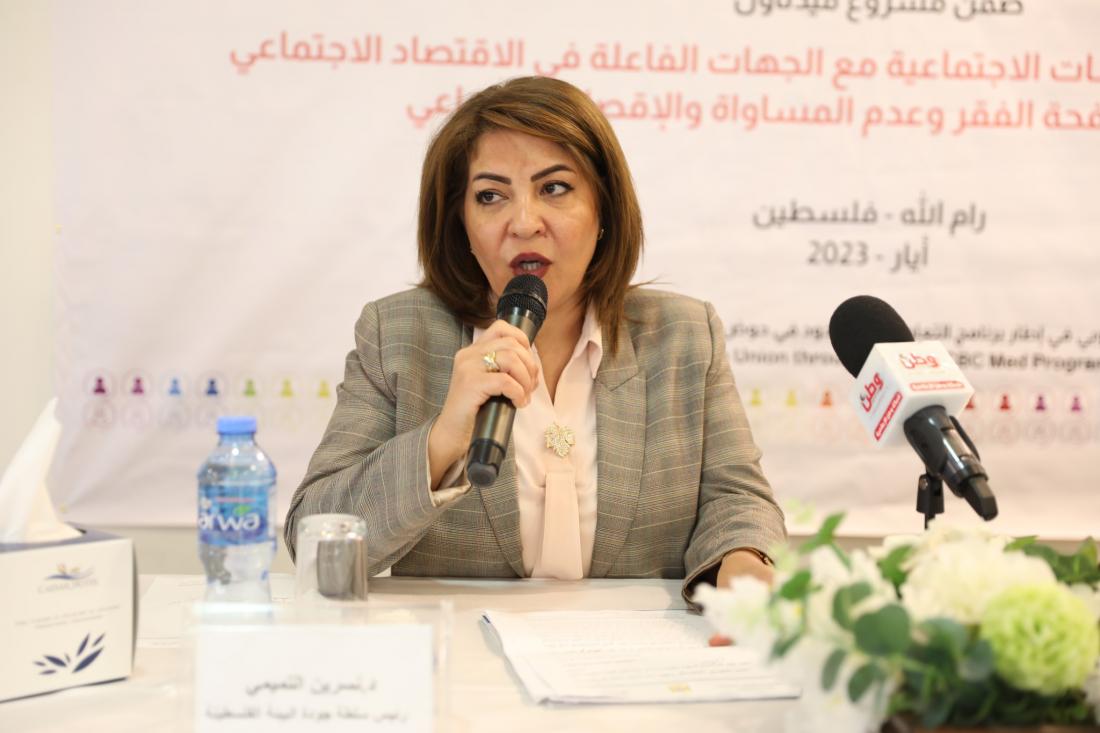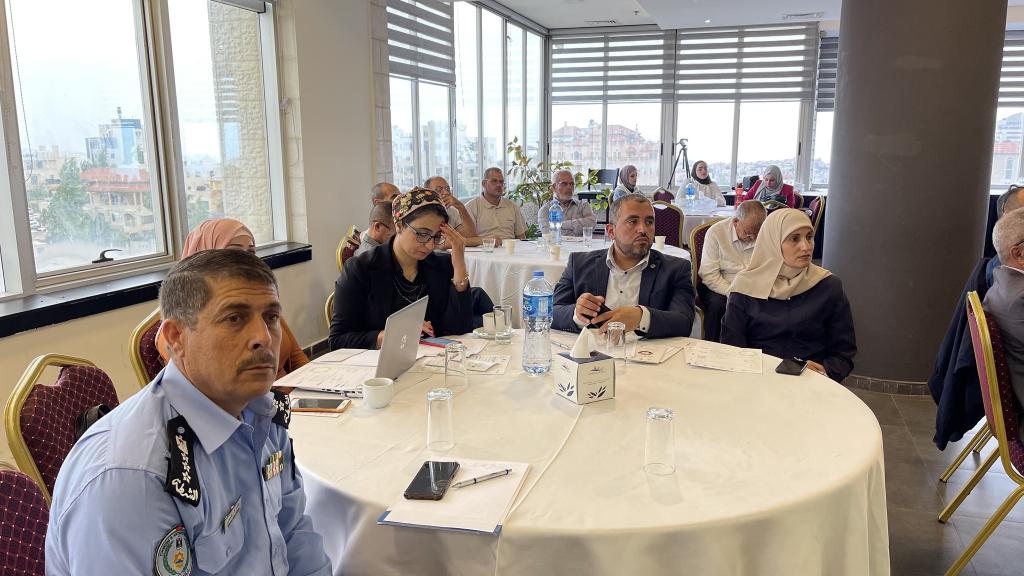Palestine: MedTOWN organised First National event on Waste To Wealth

Transforming waste to wealth by promoting innovative alternative collaborative models for solid waste management in Palestine
On May 28, 2023, the Palestinian Hydrology Group (PHG) and the Palestinian Agricultural Relief Committee (PARC) in cooperation with the Environmental Quality Authority (EQA) organized the first national event of MedTOWN project, under the theme "transforming Waste to Wealth" in Ramallah, Palestine. This significant gathering, held under the auspices of the president of the Environmental Quality Authority (EQA), was part of the MedTOWN project “Co-producing social policies with SSE actors to fight poverty, inequality and social exclusion” is financed by the European Union through the ENI CBC Med Programme 2014-2020. The event brought together over 40 participants, including representatives from government institutions, private sector companies, local authorities, NGOs, technical and legal experts.

The event proved to be highly successful in bringing stakeholders and decision-makers from the solid waste sector together, effectively raising awareness about the detrimental effects of existing waste management practices while advocating for innovative alternative collaborative models in circular economy. Participants showed substantial interest and admiration for the MedTOWN initiative, appreciating its innovative and co-production approach and the economic opportunities it presented through collaboration among various stakeholders.
One of the key outcomes was the adoption of the pilot model in Beitillu, which involves waste separation at the source provide incentives to target household to do the separation. A special phone application and computerized system to manage the organic waste separation, collection and incentives scheme. Government entities expressed their interest to adopt similar initiatives, their willingness to participate in future project proposals and national waste management strategies. Government representatives also committed to proposing amendments to laws, policies, and regulations to accommodate similar innovative initiatives.
The private sector showed interest in investing in such initiatives and forming partnerships with the government, non-governmental organizations, and local authorities to address the solid waste challenges. The event facilitated a policy dialogue, highlighting the need to update and renew existing laws and regulations, make them more sectoral and flexible, and formalize the incentivization system.
Important recommendations and outputs emerged from the event. These included emphasizing partnership and private sector integration in the waste sector, increasing government support through budget allocations, ensuring sustainability and scalability of waste management projects, addressing obstacles such as the Israeli occupation and licensing issues for compost factories, updating policies and legislation, and supporting small community initiatives and the circular economy.

Overall, the event aimed to foster collaboration, government support, and sustainable approaches to tackle the challenges in waste management in Palestine using a creative and innovative collaborative approach. It provided a platform for stakeholders to exchange ideas, share experiences, and work towards effective solutions for solid waste management.









